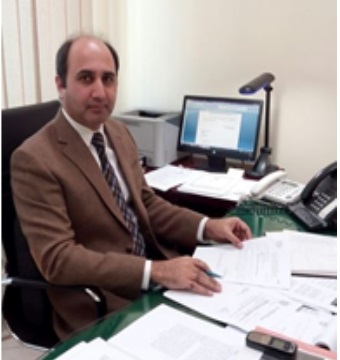Pakistan owes its creation to the leadership and vision of Quaid-i-Azam who by ‘Unity, Faith and Discipline’, converted Muslim nation into a dynamic force that swept the sub-continent and altered the destinies of a human race by lying the foundation of the second biggest Muslim state, an achievement without parallel in the annals of civilization.
Whatever little time he had after independence, the Quaid tried hard to run the affairs of Pakistan, to pass on this commitment as his legacy to the leadership and citizens of the new nation.
Mr. Jinnah was something more than Quaid-i-Azam, supreme head of the state, to the people who followed him. He commanded their imagination as well as their confidence. With his unusual powers of persuasion, luminous exposition, searching arguments, and sound judgment, the Quaid was able to win the battle for Pakistan.
Throughout his career as a politician and a legislator, his dedication to the rule of law and constitutionalism was unswerving. In the short span of seven decades, his successors have made a mockery of these values.
It is not as if there has been no progress and development. No country ever wholly stagnates. We have progressed in many fields.
We have become a nuclear power. Our economy has expanded. The cities of the Quaid’s days have grown beyond belief, and glittering new palaces have come up everywhere.
It would have been impossible to stand still for seven decades but the benefits of development have been unevenly spread, and mostly have accrued to the privileged classes. For years together we have functioned without the benefit of constitutional governance.
There has to be a future for Pakistan beyond all the skullduggery of the past and the present. There is no doubt that the Quaid wanted to see the country move ahead and prosper in all fields of life.
“The first duty of the government is to maintain law and order… The second thing that occurs to me is… Bribery and corruption. That really is a poison” he said in his speech on 11 Aug 1947. And today, the poison Quaid has referred to has spread like cancer.
That is the greatest dis-service one can do to the father of the nation, and we, as a nation, do it every single day. Indeed, we have so weakened the Quaid’s ideals that some people question whether they are any longer relevant as a frame of reference.
But it would be a grievous mistake if we fell into the error of seeking to compromise further on his faith in democracy as the only course for Pakistan to follow.
With our repeated deviations from universally accepted principles, we are often spoken of as an anachronism in today’s world moving towards political and social emancipation.
Today a national consensus is needed, based on the precepts of our founding fathers and the experience of the past 76 years, on the direction in which we want to travel.
The start of a new dawn, a new era for Pakistan is here. The nation has placed its confidence in the slogan of ‘Emerging Pakistan’ which according to the Prime Minister is the “reclaiming of Jinnah’s vision”.
Unfortunately, the legacy of Quaid and the expectations were betrayed time and again, leaving behind the bleakness of the life of the ordinary people and the monotony of the political landscape.
Will there be a genuine change of heart and direction? Accountability for all, austerity, good governance, tax reforms, pro-poor policies, friendly relations with neighboring countries can make a difference.
Emerging Pakistan will be a welfare state, a model followed in Scandinavian countries. In emerging Pakistan, the people will be masters of their own destinies, they will be politically and economically empowered, there will be non-political model of policing, and instant and quality justice through comprehensive judicial reforms.
Emerging Pakistan will see industrial and agriculture revival, improved employment opportunities, overcoming electricity and water shortage, restored law & order, economic stability, educational reforms in schools, religious seminaries and vocational centres, and enriched foreign policy. And this is what people believe and the PML-N manifesto says.
Pakistan can be more stable and consolidated if the constituent units are given a strong stake in its strength and vitality.
This means not only economic development in backward provinces and regions but also a proper devolution of powers from the centre downwards.
Pakistan must squarely confront the challenge of discovering political direction and identity so as to make the days more purposeful and productive.
It is no surprise that the journey to emerging Pakistan is challenging since it passes through Quaid’s vision of modern nation-state, constitutionalism, rule of law, ethical and moral values, governance, and social and economic justice.
The journey is possible only with active participation of each citizen without prejudice, tolerance, understanding, empathy and an openness to diversity. We must understand that a nation progresses with the attitude of its people that honors the basic principles of life like ethics, integrity, responsibility, productive will and punctuality.
Unfortunately, we as a nation, take advantage over everything and everyone. We are in this state because we see something done wrong and say ‘let it be’. We should have a spirited memory and attitude.
We need to pledge this day as a reminder that we all have a duty to fulfill. Let us be Pakistani, and let us celebrate this Pakistan Day vowing to contribute and playing our part towards Emerging Pakistan.
The writer is Ph.D Political Science, and visiting faculty to QAU Islamabad. He can be reached at zafarkhansafdar@yahoo.com and tweet@zafarkhansafdar.

